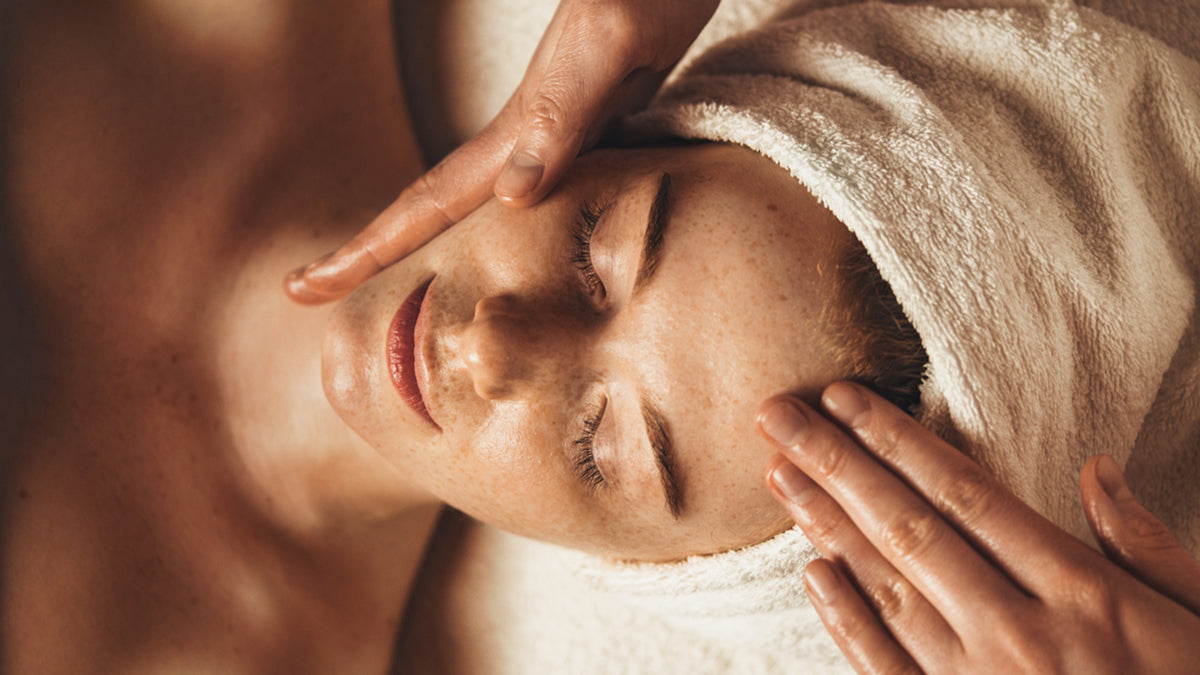Given just how many different types of beauty products are available, plus long lists of ingredients found in each one, skin care can quickly become confusing.
If you have lots of questions about what to apply to your skin and what to avoid, you're not alone. Happily, we're here to help clear things up. Below we'll look at answers to common FAQs for skin care products, plus provide tips for choosing those that are best for your needs.
What Are the Best Skin Care Ingredients, and Why?
A typical skin care routine includes several steps:
-
Cleansing
-
Exfoliating (several times per week on average)
-
Possibly applying serum(s) or toner
-
Moisturizing
-
Applying sunscreen/SPF over your moisturizer everyday
This type of routine might seem overwhelming, but it becomes second nature when you do it everyday. For many of us, the hardest part is choosing the right products and then consistently using them!
What type of ingredients should you look for in skin care products? Based on their benefits and low risk for side effects, we recommend seeking out products with some of the following:
-
Aloe leaf: Moisturizes; helps to heal burns and other damage; contains antioxidants.
-
Rooibos leaf: Has anti-inflammatory properties; may help to manage eczema, psoriasis, dermatitis, or acne.
-
Rosehip oil: Encourages skin cell turnover; can help to decrease dullness and improve tone.
-
Evening primrose oil: Has emollient (hydrating) properties; reduces dryness and softens skin; improves overall skin texture.
-
Jojoba oil: Has moisturizing effects; gentle and makes a great carrier oil for essential oils.
-
Pomegranate seed extract: Rich in antioxidants that fight free radical damage; may help to fight signs of aging.
-
Pineapple and papaya extracts: Helps to exfoliate the skin; have anti-inflammatory and antimicrobial benefits.
-
Glycerin: Acts as a humectant, making it great for hydrating skin and locking in moisture; often used with other ingredients to boost their effects.
-
Alpha Lipoic Acid: Has strong antioxidant effects; helps to defend skin cells from damage such as UV damage; used for anti-aging effects, including to fight wrinkles and fine lines.
-
Niacinamide/Vitamin B5: Improves skin barrier; helps to brighten skin and fight dullness; may help to reduce acne, eczema, and fine lines.
-
Vitamin C: Has antioxidant effects; protects against sun damage and may help to slow signs of aging; can reduce dark circles under eyes; can help to treat hyperpigmentation, sun spots, and scars.
-
Alpha hydroxy acids (AHAs): Work as chemical exfoliants to help unclog pores and encourage skin cell turnover; may help other products to be absorbed more easily; fight signs of aging and can help to brighten skin.
-
Retinol/vitamin A derivatives: Improves overall skin tone; helps to decrease signs of sun damage and may help to slow signs of aging; can reduce dark circles under eyes; can help to treat acne; beneficial for decreasing hyperpigmentation, sun spots, and scars.
Many of these ingredients are found in the products (cleanser, moisturizer, and hydrating mask) that we include in the Adarose Self Care Experience. Plus, we take the guesswork out and have an expert Licensed Esthetician guide you through exactly how to use the products.

Which Products Should You Avoid?
-
Phthalates
-
Parabens
-
Sulfites
-
Allergens such as gluten (also ensure you buy vegan products if you strictly avoid all animal-derived ingredients)
What's wrong with these ingredients (which are very often found in commercial beauty products)? While not everyone responds to them badly, they can cause issues like dryness, itching, rashes, and allergies in some people, especially those with sensitive skin.
You might wonder why they're added to beauty products in the first place. The answer is: they help preserve products and improve their texture, foaming qualities, smell, and look.
It's wise to always read ingredient labels when purchasing items you intend to put directly on your skin; your skin absorbs chemicals pretty easily which can then make their way into your bloodstream. Ideally, choose products made with mostly organic ingredients and those that are free of artificial perfumes, fragrances, and dyes.
At AdaRose, we strive for the best quality skin care products so you can enjoy self care time with a peace of mind. All of our products are: free of phthalates, parabens, and have no added gluten; they are also vegan and consist of 80% organic content at minimum.
Which Ingredients Shouldn't Be Used Together?
Even though the ingredients below can be helpful for most skin types, be careful about using them together, since this might cause irritation:
-
Acids (such as AHAs and BHAs) + retinol
-
Vitamin C + retinol (this may be okay if your skin isn't very sensitive)
-
Acne products (such as benzoyl peroxide) + AHAs and BHAs
Also be sure to not overuse products; instead follow directions regarding how much and how often to apply them. Even ingredients that you normally tolerate well can start to cause irritation if you apply them too often, especially things like retinol, acids, and exfoliants.
As general rules of thumb: only apply retinol once per day (at night), exfoliate with a sugar/salt/microdermabrasion scrub only 2-3 times per week at most, and don't use more than two different serums together with moisturizer applied on top.
Less is sometimes more when it comes to taking care of your skin!
Can Some Ingredients Cause Worse Sunburns?
Yes, there are some precautions to take when using certain skin care products and then exposing your skin to the sun:
-
Any ingredient with antioxidants may potentially make your skin more photosensitive, meaning it may contribute to burns when you're outdoors. These include: retinol, vitamin C, and fruit extracts (like pineapple, papaya, etc.).
-
Acne products also typically make your skin more sensitive to dryness and sun burns. These include: benzoyl peroxide and salicylic acid.
Is Sunscreen Really That Important?
Which type of sunblock is best? There are two main types: physical/mineral and chemical sunscreens. Mineral sunscreens are becoming more popular because they're known to sit on top of your skin, rather than being absorbed. This type of sunblock contains ingredients such as zinc or titanium dioxide, which provide a protective barrier on your skin that effectively reflects the sun's rays, including both UVA and UVB light.





